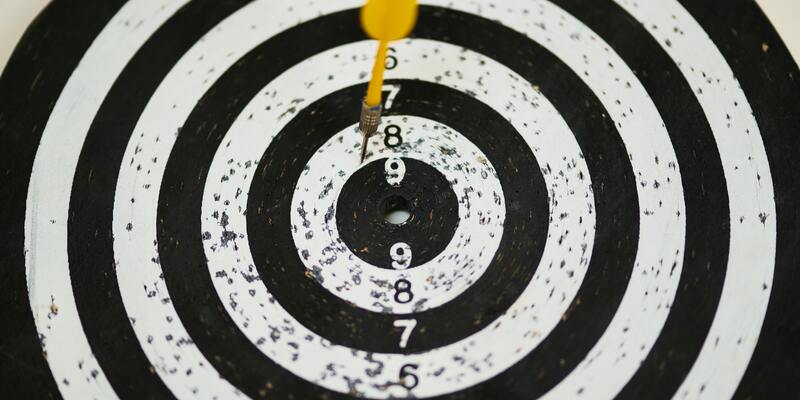The hidden art of walking: how to procrastinate less and produce more

By Micah Yongo
•
Feb 06, 2023
When 19th century German philosopher Friedrich Nietzsche called walking the path to ‘all great thoughts’, he joined with a millennia-spanning chorus of thinkers and pioneers, each of whom had prized walking as the habit crucial to their greatest discoveries.
Take Charles Darwin for example, who, in his later years, would correspond with the world through letters, routinely peppering his days with hour-long walks around the leafy d-shaped gravel track near to his home, three times a day. There, immersed in the outdoors, he’d gaze at the surrounding woodland to ponder his history-shaping insights and conjure new ideas.
It’s a tale tweaked and reprised through the diarised lives of Beethoven, Einstein, Tesla, Marie Curie, Virginia Woolf and so many others, all of whom viewed walking as critical to everything from their personal wellbeing to their prolific success.
So, why is it so many of those responsible for shaping human history — whether through business, academia or the arts — have continually counted walks as the key to their genius?
“All great thoughts are conceived whilst walking”
Why walking matters
For many of us, walking is mostly a means of passing along corridors or moving from exits to vehicles. Very occasionally we might count walking a pleasant pastime. When ambling along a sun-soaked coastline with its vast horizons and boundless skies, few find trouble seeing value in the occasional outdoor stroll.
But what if I was to tell you that we perform better on memory and attention tests following a walk? Or that the withering of the brain’s grey and white matter, a common reality as we age, can be thwarted by no more than a consistent walking habit. Or that our ability to solve problems, sleep, and even improve our mood is enhanced by a simple stroll?
As remarkable as these realities may seem, all have been proven true by science. Those who walk regularly tend to live longer, feel better and retain sharper minds.
Which makes walking one of the most straightforward and effective benefits you can offer to yourself.
In fact, the smart folks have even shown walking to perhaps be the most powerful and consistently effective muse there is, enhancing creativity and the ability to generate novel ideas.
“The moment my legs begin to move, my thoughts begin to flow.”
Whether you’re trying to spin up an especially complex design, find inspiration for a thesis, push through with a pressing deadline, or simply cultivate a more enriching approach to your work and life as a whole, walking is the one habit that needs to become a priority for you this Spring. Or, for that matter, this summer, autumn or winter.
Walking is the year round hobby that all who are able to ought to prioritize. So, what’s the best way to start or maintain a productive walking habit?
3 simple ways to begin a walking habit
Start with small walks
Walking for 30 minutes a day is ideal when it comes to supplementing brain health, physical health, productivity and emotional wellbeing. But amid the busyness of meetings and work tasks, carving chunks of time to step away from the things we know we need to do can seem daunting.
Starting with short walking stints can help. Planning these smaller intervals of non-work times into your day will allow you to build the habit of taking strategic rests, whilst also sampling the benefits to mood and work that are experienced through allowing your brain a midday breather that doesn’t involve a digital device.
Importantly, this practice can be used strategically to help you push through challenging tasks and generate fresh ideas.
“I have walked myself into my best thoughts, and I know of no thought so burdensome that one cannot walk away from it.”
How to use walking productively with your work
- Using a timer, set aside 5-10 minutes to think intentionally about a problem or task you’re working on. Run through all of the main challenges, sticking points and difficulties in your mind.
- Take your work away from the desk by going out for a walk. Spend the first ten minutes allowing your mind to wander, and enjoy the sense of renewal inherent with being outdoors.
- Then, allow your mind to drift back toward your task, and take note of any ideas or fresh perspectives that emerge.
Keep your walks fresh
There can be a certain comfort to walking familiar paths — the mind finds its groove; your thoughts, unburdened by the need to attend fully to the present, are released to roam, triggering delightful reveries and fanciful bouts of daydreaming. However, every now and then routine can become a barrier to fresh thinking.
Disrupting your norms to venture to new and unfamiliar places can help to prevent this. New experiences and environments engage the brain in a different way, firing new and unusual connections that can lead to novel insights, solutions and ideas.
This is why planning the occasional trip to explore a new walking haunt can often be just what you need. You’ll want to have built up a solid walking habit before you do this. It’s important to have a beaten path, so to speak, before you can reap the benefits of departing from it.
“If you are seeking creative ideas, go out walking. Angels whisper to a man when he goes for a walk.”
Try an Awe Walk for free
Set aside ten minutes to be guided along your outdoor stroll with a FLOWN Awe Walk. These audio experiences are available live or on-demand, allowing you to join with other FLOWN members to decompress and reflect, or take time away from the desk on your own terms.
Set goals for your walks
There’s a certain nomadic thrill to be found in the occasional roam. The body is energized, the senses dilate, and the mind ignites as you find yourself spurred on by the natural sense of wonder and adventure inherent to discovering a new path and space.
A next step from this can be to map out your walks ahead of time, to arrive at an appealing destination. Perhaps you might plan to walk to a country pub or an intriguing landmark or view. Or, if you’re in the city, you might plan to take in inspiring works of history and art during a quiet wander around a nearby museum.
When doing this, the gentle uncluttering of mind and body that ensues through walking is accompanied by the added tug of impetus that comes through moving toward a predetermined goal.
Introducing this practice to the workday can often help to reawaken a sense of momentum when you’re procrastinating, or feeling blocked with a challenging project.
“It is good to collect things; it is better to take walks.”
Plan productive walks into your week
Begin your workweek by planning a goal-oriented walk into your schedule. You may even want to turn one of your meetings into a walking meeting as part of this.
Proven to improve brain function and divergent thinking in particular, collaborating with colleagues whilst you walk is an excellent way to conjure especially dynamic ideas.
Walk, work, repeat
Whenever, wherever and however you walk it’s clear that integrating this habit into your workday has massive benefits — professionally, personally and physically.
It’s no wonder history’s most influential and progressive thinkers were often daily walkers, with many choosing to take walks multiple times a day to spur their creativity and push forward their work.
“It is not easy to walk alone in the country without musing upon something.”
There’s evidence to suggest a quick hourly stroll between stints of focused work could be the best way to stay productive throughout your workday, alongside allowing you to think your best thoughts.
So, whether you’re a habitual walker, or just taking up the habit, it’s worth knowing that your next big breakthrough could be awaiting your next step, both figuratively and literally,















